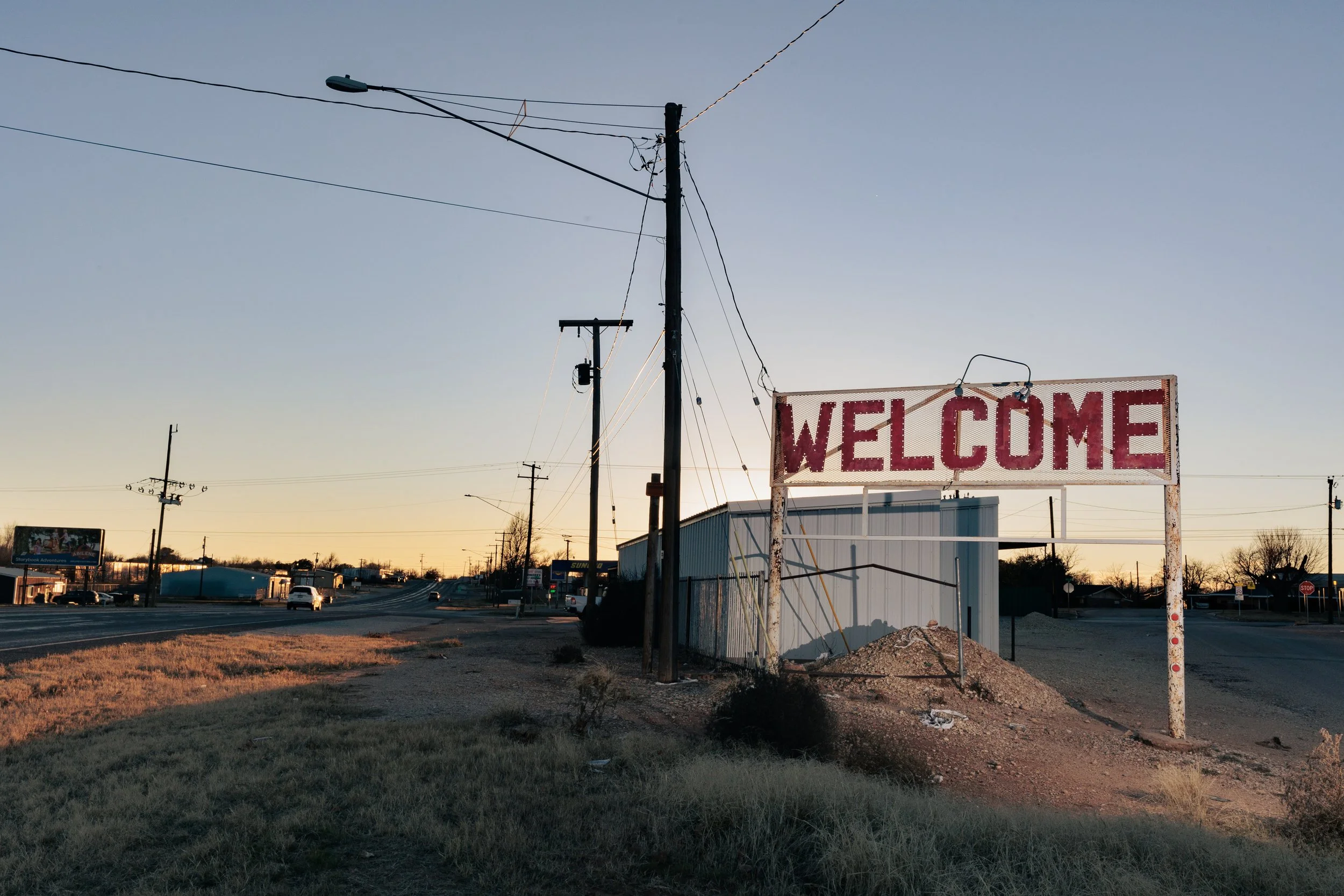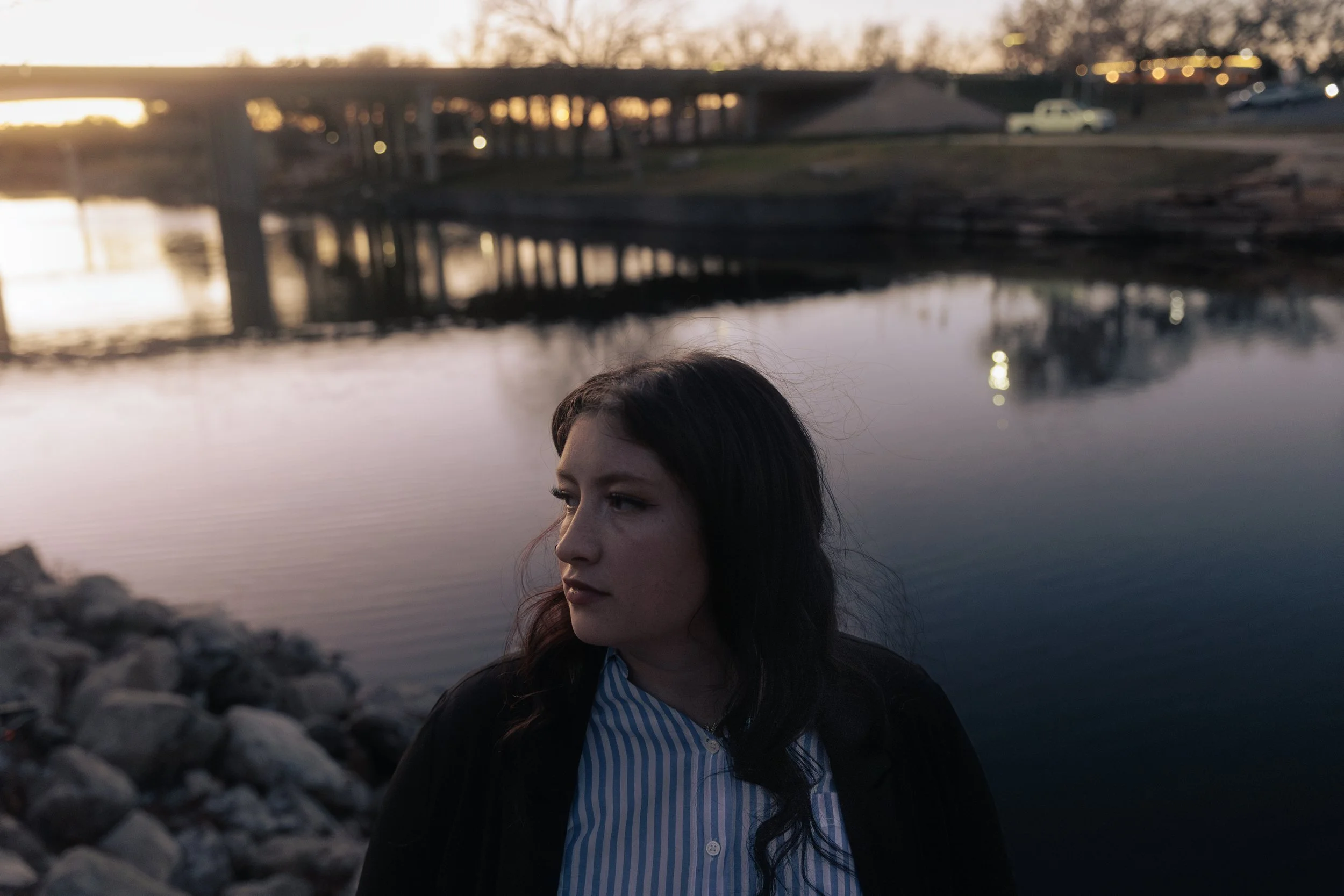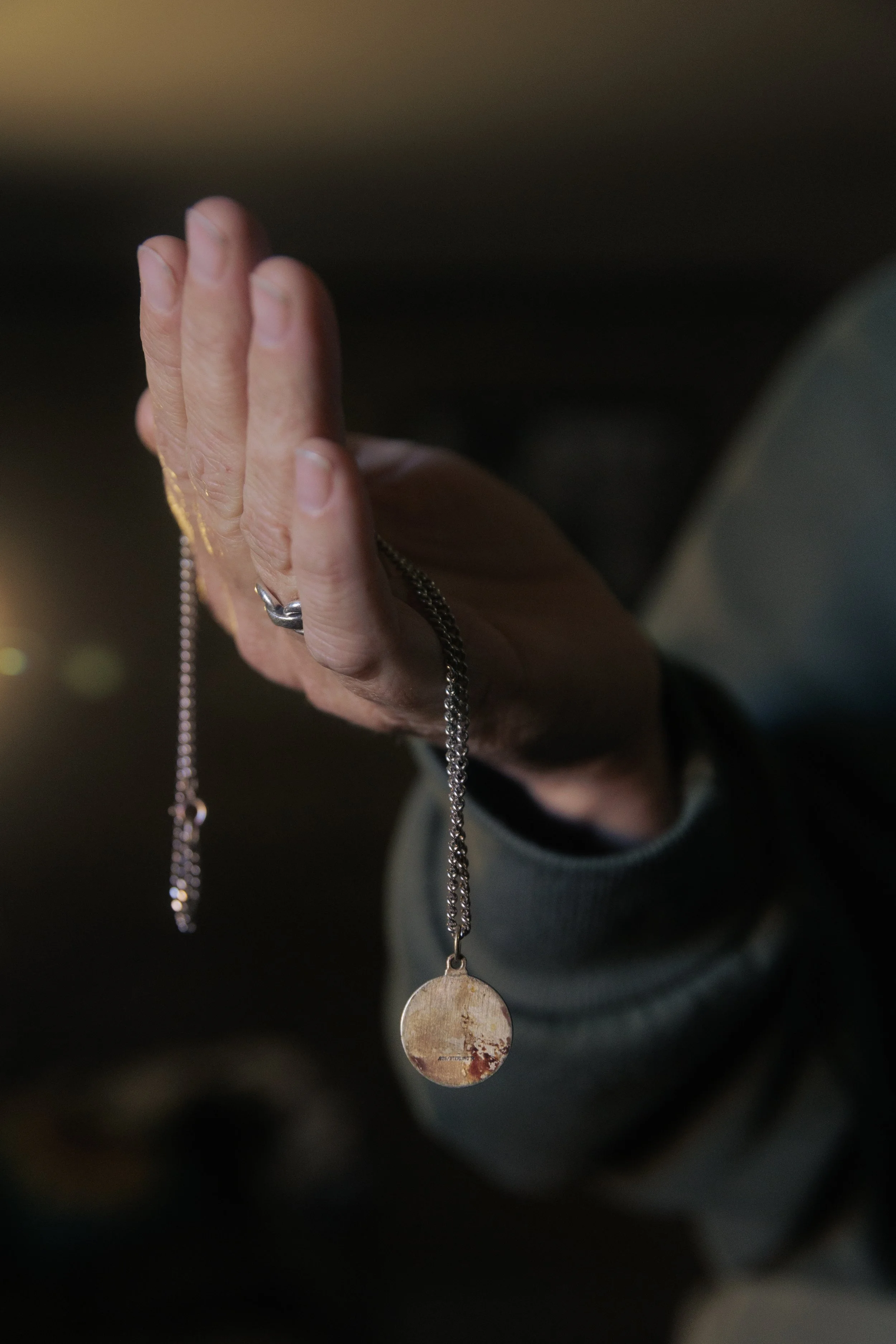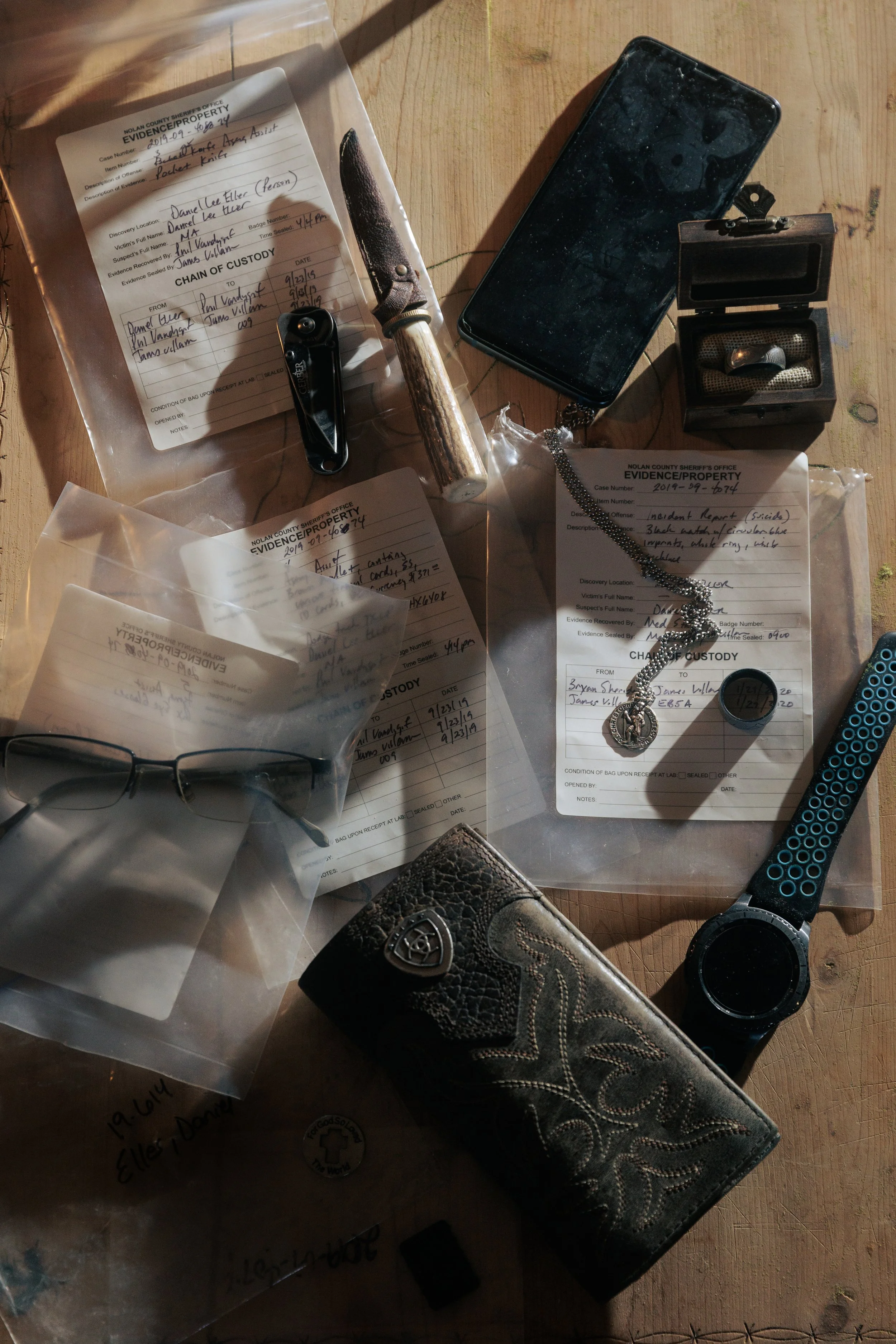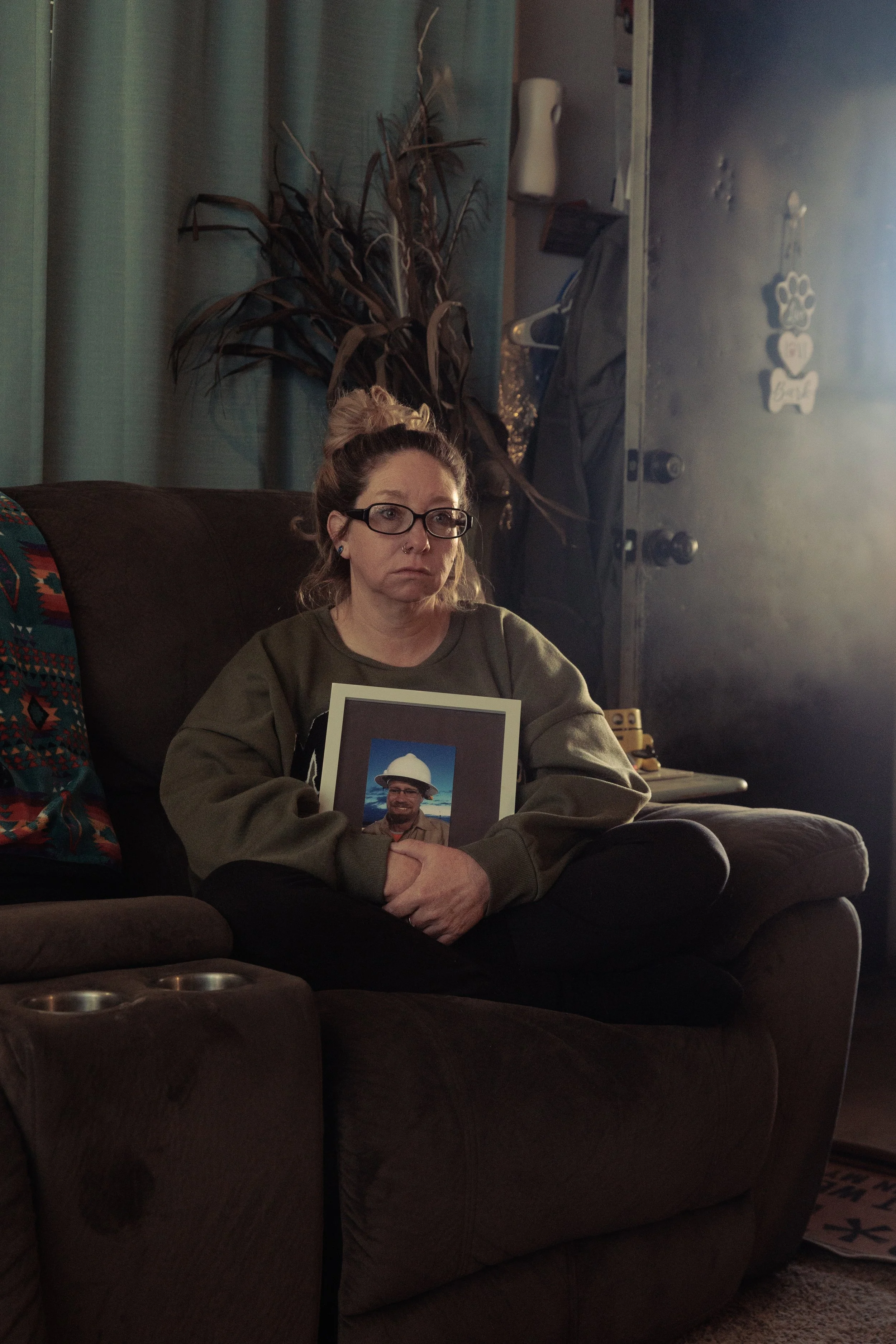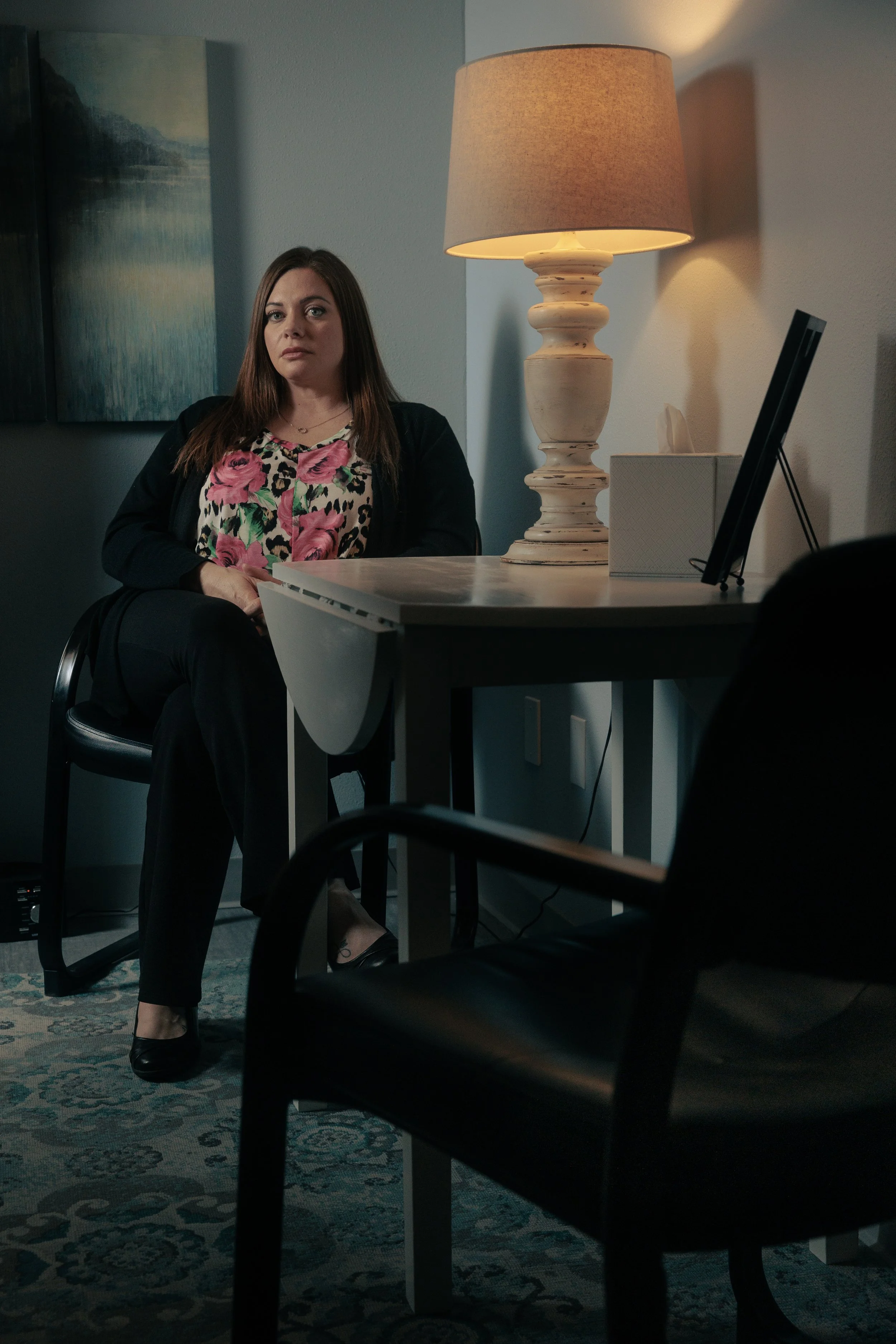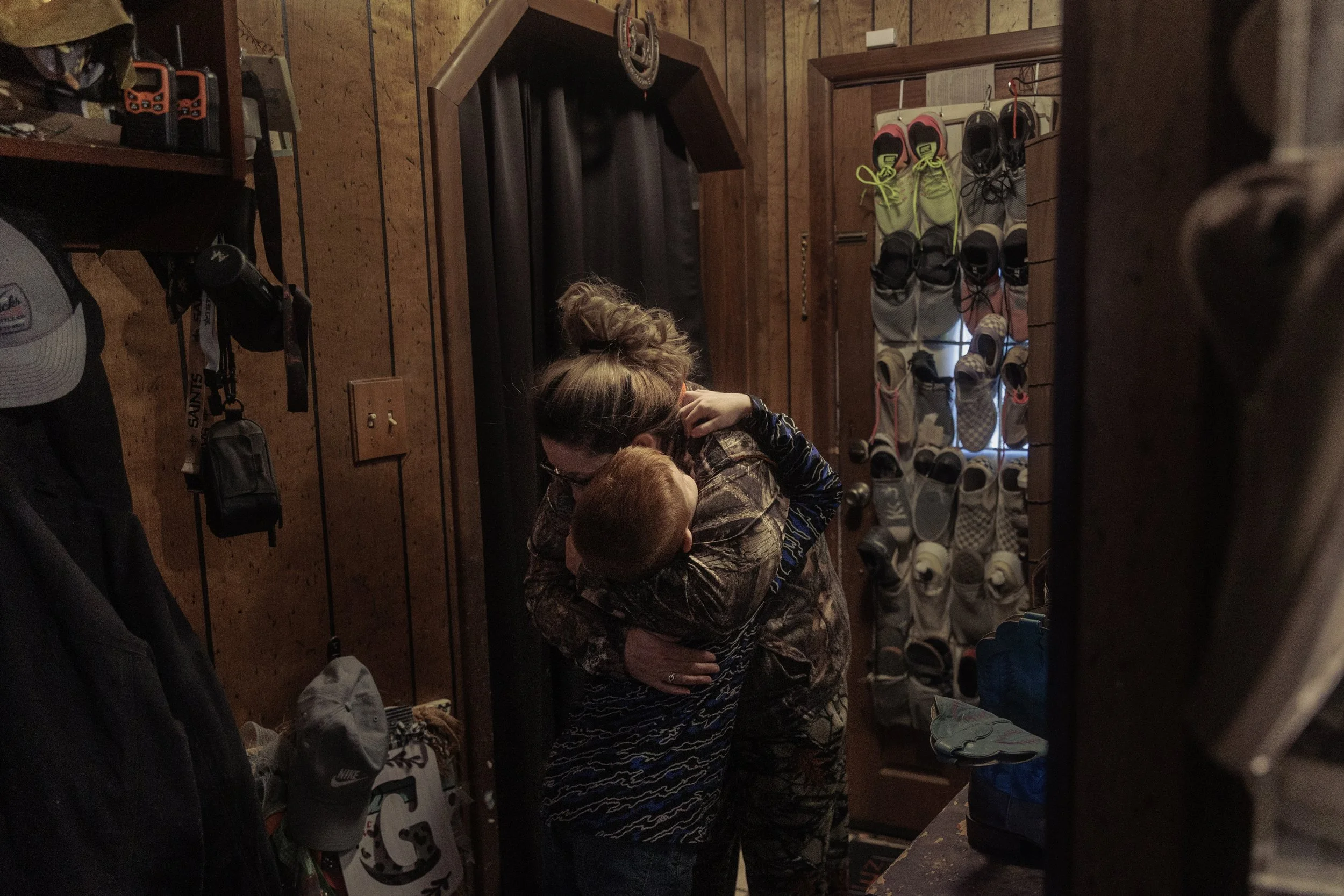Candi Garrett stands on her driveway, the same place her husband died by suicide five years ago.
As I take portraits of her, the roar of a truck engine in the distance makes her whip around. She watches it pass, then turns back with a heavy sigh — the kind that’s all too familiar with the ghosts of loved ones making themselves known. “It’s the same truck Daniel had,” she says.
“This Town Has Nothing” investigates rural Texas’ mental healthcare crisis in the town of Sweetwater. Kinzie Garrett, who saw her stepdad Daniel Lee Eller as her best friend — a “dorky little dude” — was just 16 when he died. She doesn’t remember how the fight between her mom, Candi, and Daniel started that day, but it escalated until Daniel was alone in his truck with a gun. He had struggled with depression for years.
His story isn’t unusual in rural Texas, where stigma is high and access to mental health care is scarce. Nolan County, like most rural counties across the country, has no psychiatrists. Kinzie says the mindset in Sweetwater is to just “grin through” the hard times. From the story — “People in rural areas experience mental health problems at roughly the same rates as those in larger cities, but they are less likely to receive treatment… The suicide rate in Texas’s nonmetro areas is 30-45 percent higher than in metro areas, and it’s been increasing faster there, too.”
According to researchers at Johns Hopkins University, children who lose a parent to suicide are about three times more likely to die by suicide themselves. Candi has lived through 14 suicides in her life. Her biggest fear now is for her 11-year-old son, who was just five when Daniel died. “I’m walking on eggshells because I’m just trying to keep him alive,” she said. “That’s my biggest fear — that he’s going to become a statistic.”
For the Texas Observer, Story by Daniel Carter